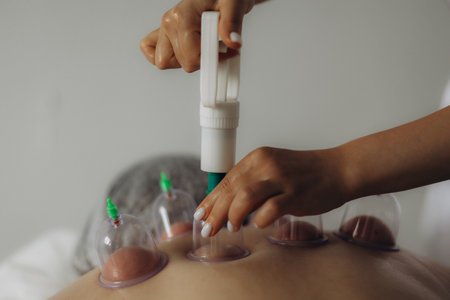Introduction to Combination Vaccines in the UK
As a new parent navigating the world of childhood immunisations, you might have come across the term “combination vaccines” and wondered what exactly they are. In the UK, combination vaccines play a vital role in protecting children from multiple serious diseases with fewer injections. Essentially, these vaccines contain several different immunisations within a single jab—making the process quicker, more efficient, and less stressful for both little ones and parents. The NHS offers combination vaccines as part of its routine childhood immunisation schedule to ensure that every child receives comprehensive protection against illnesses such as diphtheria, tetanus, whooping cough, polio, and more. By streamlining the vaccination process, combination vaccines help keep our children healthier while minimising discomfort. Understanding how these jabs fit into your childs vaccine appointments can make the journey smoother and provide peace of mind as you support their early development.
2. How Combination Vaccines Work
If you’re new to parenting in the UK, you might feel a bit overwhelmed by the number of vaccines your child is offered in their first few years. One way the NHS helps make things easier is by using combination vaccines. But what exactly are they, and how do they work?
Combination vaccines are specially developed to protect against several diseases with just one injection. This means fewer jabs for your little one, less stress at each appointment, and the same strong protection as if each vaccine were given separately.
How Are Combination Vaccines Developed?
Scientists in the UK and around the world spend years researching and testing these vaccines. They carefully mix together different components—each one targeting a specific illness like diphtheria, tetanus, or whooping cough—so that they work well together without interfering with each other. Before any combination vaccine is approved by the Medicines and Healthcare products Regulatory Agency (MHRA), it must pass strict safety checks and clinical trials involving thousands of children.
How Do They Protect Against Multiple Diseases?
Each part of a combination vaccine triggers your child’s immune system to produce defences (called antibodies) against a particular disease. When these different antigens are combined in a single jab, your baby’s immune system learns to recognise and fight off all those illnesses at once. This not only means fewer visits to the GP but also ensures your child gets protected as early as possible.
Common UK Combination Vaccines
| Vaccine Name | Diseases Covered |
|---|---|
| 6-in-1 Vaccine | Diphtheria, Tetanus, Whooping Cough (Pertussis), Polio, Hib (Haemophilus influenzae type b), Hepatitis B |
| MMR Vaccine | Measles, Mumps, Rubella |
Why Are Combination Vaccines Used?
The main reasons are convenience and protection. With combination vaccines, your child needs fewer injections overall—which can be a big relief if you’re worried about tears and sore arms! It also helps ensure that more children get fully vaccinated on time, which keeps outbreaks of dangerous illnesses much less likely across UK communities.

3. Safety Standards and Monitoring in the UK
As a new parent navigating the world of childhood vaccinations in the UK, I found myself particularly interested in how combination vaccines are kept safe for our little ones. The safety standards here are exceptionally strict, offering reassurance to families across the country. Before any combination vaccine can be offered by the NHS, it goes through a series of rigorous clinical trials. These trials involve thousands of participants and are carefully monitored for any side effects or concerns.
Once a vaccine has passed these trials, it must be approved by the Medicines and Healthcare products Regulatory Agency (MHRA), which is the UK’s independent regulator. The MHRA examines all evidence on effectiveness and potential risks before granting approval. Only when a vaccine meets their high standards does it become available in GP surgeries and clinics.
The process doesn’t end there. After a combination vaccine is introduced, ongoing monitoring continues through several national systems, including the Yellow Card Scheme, where doctors, nurses, and even parents can report any suspected side effects. This real-time surveillance means that experts are always watching out for any issues that might arise, no matter how rare.
From my own experience as a first-time mum, I was relieved to learn that combination vaccines undergo such thorough checks at every stage. The transparency and commitment to safety from the NHS and regulatory bodies gave me confidence when making decisions about my child’s vaccinations.
4. Effectiveness and Benefits for Children and Families
As a new parent in the UK, I know how overwhelming it can feel when you’re handed your child’s immunisation schedule. But after my own experiences with combination vaccines, I’ve seen first-hand how effective and practical they are—not just for our little ones, but for us as parents too.
Real-World Effectiveness of Combination Vaccines
The NHS and Public Health England closely monitor vaccine effectiveness through robust national data. Combination vaccines such as the 6-in-1 (which protects against diphtheria, tetanus, whooping cough, polio, Hib, and hepatitis B) have been shown to produce strong immune responses—meaning children are very well protected from these serious illnesses.
| Vaccine | Main Diseases Covered | Effectiveness Rate |
|---|---|---|
| 6-in-1 Vaccine | Diphtheria, Tetanus, Whooping Cough, Polio, Hib, Hepatitis B | Over 95% after full course* |
| MMR Vaccine | Measles, Mumps, Rubella | Over 90% after two doses* |
| MenACWY | Meningococcal Groups A, C, W and Y | Over 85% after vaccination* |
*Based on UK Health Security Agency data; actual protection may vary by individual.
Making Life Easier for Parents and Children
If you’re anything like me, minimising stress at appointments is a top priority. Combination vaccines mean fewer injections at each visit—my child needed only one or two jabs per appointment rather than several separate ones. This not only reduces discomfort for your baby but also lessens anxiety for us parents who dread seeing our little ones upset.
Main Benefits for Families in the UK:
- Fewer Appointments: Less time off work or nursery and fewer trips to the GP surgery.
- Simplified Schedule: Easy-to-follow routine helps prevent missed doses or confusion.
- Improved Uptake: With fewer needles and less faff, more families complete the full course on time.
- Community Protection: Higher vaccination rates help protect vulnerable children who can’t be immunised themselves.
A Personal Note:
I found that combination vaccines made the whole process much more manageable—I could plan our day around appointments without feeling overwhelmed. And knowing my child was protected from multiple diseases with fewer injections gave me real peace of mind.
5. Addressing Common Myths and Concerns
As a new parent in the UK, I completely understand how easy it is to worry about what’s best for your baby—especially when it comes to combination vaccines. There’s a lot of information floating around, and not all of it is accurate. Let’s tackle some of the most common misconceptions and concerns British parents often have.
Myth 1: “Too Many Vaccines at Once Overwhelm a Baby’s Immune System”
This is something I heard from other mums at baby groups, but after speaking with my GP and doing my own research, I learned that babies are exposed to far more germs daily than any vaccine will give them. The NHS reassures us that combination vaccines are thoroughly tested to make sure they’re safe and effective when given together, and our little ones’ immune systems are well equipped to handle them.
Myth 2: “Combination Vaccines Are Less Effective Than Single Vaccines”
I worried about this too, but the science is clear. Combining several vaccines into one injection does not reduce their effectiveness. In fact, combination vaccines have been used in the UK for years with excellent results—protecting children from serious diseases without needing lots of separate jabs.
Concern: “Are Combination Vaccines More Likely to Cause Side Effects?”
It’s natural to be anxious about side effects. From talking to my health visitor, I learnt that most side effects (like a mild fever or soreness at the injection site) are short-lived and much milder than the diseases these vaccines prevent. Serious reactions are very rare, and the benefits massively outweigh any risks.
Worry: “What If My Child Misses a Dose?”
This was something I stressed about when we had to rearrange an appointment due to illness. The good news is the NHS has guidelines for catching up on missed vaccines, so your child can still get full protection even if you miss a dose or two along the way.
Question: “Do Combination Vaccines Contain Harmful Ingredients?”
This is a question that comes up on local parenting forums all the time. All ingredients used in UK vaccines are strictly regulated by the Medicines and Healthcare products Regulatory Agency (MHRA) and have been proven safe for babies and young children. They don’t contain mercury or anything that could harm your child.
Ultimately, being informed helped me feel confident about vaccinating my child on schedule. If you’re ever unsure, don’t hesitate to speak with your GP or health visitor—they’ve answered all my questions with patience and understanding, which made a world of difference.
6. Practical Advice for Parents in the UK
Tips from Experience: What to Expect at Your Child’s Vaccine Appointment
As a parent who has recently navigated the world of combination vaccines with my own little one, I know how daunting it can feel before that first appointment. In the UK, children are routinely offered several combination vaccines on the NHS schedule—so you’re definitely not alone! At your child’s vaccine appointment, expect a warm welcome from practice nurses who are experienced with young children. The appointments tend to be efficient but never rushed; the nurse will check your child’s health, explain which vaccines are due, and answer any questions you might have. Don’t hesitate to ask about side effects or aftercare—no question is too small. It’s normal for babies to cry briefly after the jab, but most settle quickly with a cuddle or a feed.
Preparing Your Little One (and Yourself!)
From my experience, preparation makes a real difference. Dress your baby in easy-to-remove clothing for quick access to their thigh or arm. Bring their favourite comforter or toy for distraction. If you’re breastfeeding or bottle-feeding, feeding right after (or even during) the vaccination can help soothe them. For older babies and toddlers, talk them through what will happen in simple terms and praise their bravery afterwards. It’s okay to feel anxious yourself—many parents do! Taking deep breaths and staying calm helps reassure your child too.
Local Resources for Further Information
The NHS website is always my first stop for trustworthy vaccine information tailored to UK families (NHS vaccinations). Your local GP surgery or health visitor is also there to support you—they’re used to answering all sorts of questions from new parents. Many areas offer drop-in clinics if you need flexibility or missed an appointment. For reassurance from other parents, community groups like NCT or local Facebook parenting groups can provide support and shared experiences specific to your area.
Final Thoughts
Navigating combination vaccines can seem overwhelming at first, but with the right information and support, it becomes just another part of caring for your little one’s health in the UK. Every child reacts differently, but knowing what to expect and where to turn for help truly makes a difference. You’ve got this!

